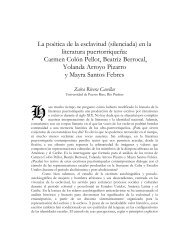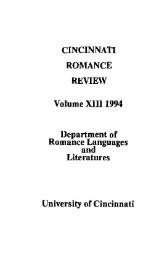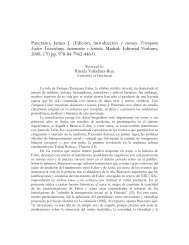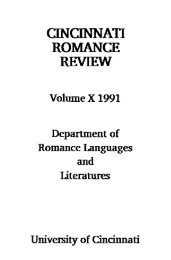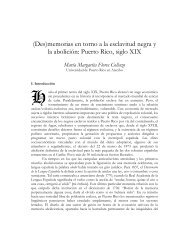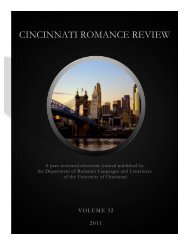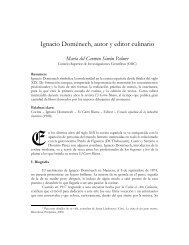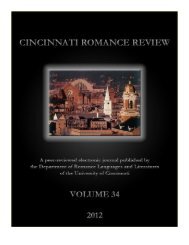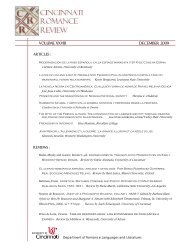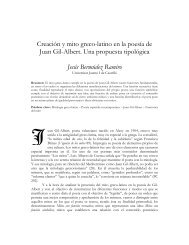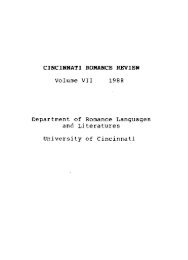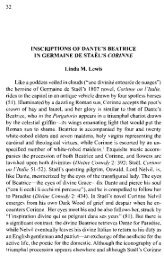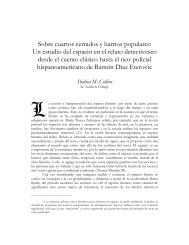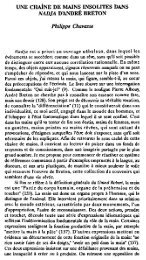Volume 30 (2011) - Cincinnati Romance Review
Volume 30 (2011) - Cincinnati Romance Review
Volume 30 (2011) - Cincinnati Romance Review
You also want an ePaper? Increase the reach of your titles
YUMPU automatically turns print PDFs into web optimized ePapers that Google loves.
(A)cercamiento al concepto de la negritud en la<br />
literatura afro-colombiana 1<br />
Alain Lawo-Sukam<br />
Texas A&M University<br />
A tiger does not shout its tigritude: it<br />
pounces. A tiger in the jungle does not<br />
say: I am a tiger. Only on passing the<br />
tiger’s hunting ground and finding the<br />
skeleton of a gazelle do we feel the place<br />
abound with tigritude. (Wole Soyinka<br />
citado en Janheinz 265-6) 2<br />
Colombia es el tercer país del hemisferio occidental con una importante<br />
población de ascendencia africana después de Brasil y de los Estados<br />
Unidos de América. En la década de los setenta, el despertar de la<br />
consciencia negra en Colombia cristaliza con la influencia de los<br />
movimientos “Black Power” y “Third World Liberation Front” en los Estados Unidos<br />
de América. En Historia del negro en Colombia (1986) Ildelfonso Gutiérrez Azopardo<br />
ilustra este fenómeno en el apartado “The Awakening of the Black and Negritud.” Dice<br />
lo siguiente:<br />
1) 1975: Entrance as a candidate for the presidency of the Republic for<br />
the period 1978-82 of a black doctor/writer from Cartagena. 2) 1975-77:<br />
Birth of the movements “Black Population,” “Negritudes,” and “Black<br />
Culture.” In Buenaventura appeared the groups “The Black Panthers,”<br />
and “the Kettle”; in Popayán the group “Maroon,” made up of black<br />
students; in Tunja study group “tabala,” made up of university<br />
______________________<br />
1 Quisiera dar las gracias al Prof. Bertín Ortega por el tiempo dedicado a la lectura de este<br />
trabajo y a las observaciones que fueron importantes para llevar a cabo tal empresa.<br />
2 La crítica que el Premio Nobel de literatura (1986) Wole Soyinka hizo al concepto de la negritud<br />
por ser demasiado simplificador, permitió una re-conceptualización del mismo para hacerlo más<br />
pragmático.



